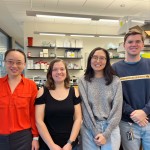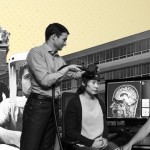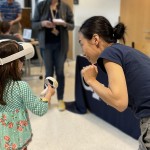In the Press
News Listings
The School of Biological Sciences associate professor will be digging deep into itch-sensing neural…
Co-PI Simon Sponberg will lead the Georgia Tech contingent of researchers, which aims to understand…
A new study co-led by Anna (Anya) Ivanova highlights how human neuroscience is paving the way for…
Since the early days of the Institute, Georgia Tech students have explored aspects of the mind,…
Campus and the Atlanta community are invited to the official kickoff event for the 2024 Atlanta…
Ascend, a new career development program for mid-career faculty, launched its cohort for Spring…
As innovation surrounding artificial intelligence continues, Georgia Tech experts offer their…
Lizzie Wright knew Georgia Tech was a great school, but had no idea the community she would…
Many insects fly synchronously, matching the nervous system pulses to wing movement. But smaller…
Holder hopes to boost outreach to K-12 schools in her new role while continuing to serve as…










